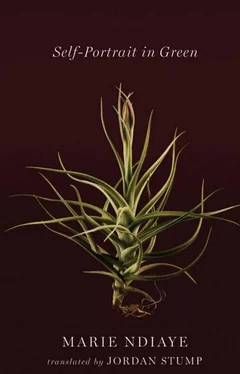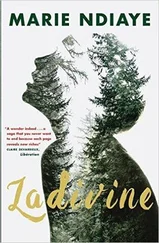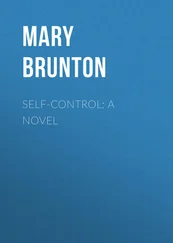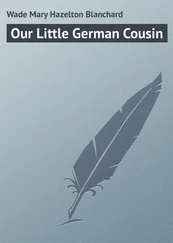“If you see someone whenever you go by his house, does that mean he’s there all the time, or only when you go by his house? What do you think?”
My four children sit still for a moment to ponder. Then they shrug apologetically, all together, to signal I’ve asked them a question they can’t possibly answer.
Now they’re out in the schoolyard, and my two youngest stand glued to a spot beneath the plum trees, with that wavering look, that vaguely lost, uncertain, disoriented air that often comes over very young children when they suddenly find themselves alone amid shouting and jostling. Seeing that makes me melancholy. I’d like to walk into the schoolyard, take them by the hand, and drive them back home. I can’t help thinking it’s wrong to desert them like this, but I know that’s a wrong, dishonest feeling, I know they know perfectly well that they’re not being abandoned, not being consigned to some horrific fate. I remember my own fright when I was their age, I think I can remember that, and that’s why a lump comes to my throat when I see such young children alone on a vast, raucous playground. Still, what are they thinking? Are they sure this day will end? That they’re not stranded here, alone among dozens of frenetically active bodies, for all eternity? They know, they know. Is that certain?
Then a disturbing memory comes back to me: I remember a woman in green from my grade-school days. Tall, brutal, and heavyset, she promises us all a trip to prison if we eat too slowly, if we dirty our clothes, if we don’t raise our eyes to meet hers. Her eyes are green, and she matches them with long checked skirts and turtleneck sweaters. Because of her, a pall of dread hangs over the school. She carries more than one child off toward a dark hallway, proclaiming that prison waits at the far end, and cries of terror resound as that stout woman disappears with her little prisoners clamped beneath her green-sleeved arms. The children are never seen again. They must have been seen again, surely, and yet it seems to me that they never come back, that their two tiny chairs sit empty in the classroom, and that this is the natural way of things, terrible and coherent. They hadn’t behaved.
And my two little ones, under the Japanese plums, do they behave?
Now they’ve all gone inside. The schoolyard is empty, the sweet lilac has numbed me. I must have been one of those children the woman in green carted off down an endless hallway, but fear and the inescapability of the torments to come kept me from crying out. Was I ever seen again? It’s true that green can’t possibly be the sole color of cruelty, just as green is by no means inevitably the color of cruelty, but who can deny that cruelty is particularly given to draping itself in all sorts of greens? Before going on my way, I pull three leaves off the lilac and slip them into the pocket of my shorts. That might come in handy, I tell myself, though for the moment I have no idea what’s awaiting me.
All the young women are in shorts, because it’s a shimmering spring morning, and in the amber air there’s an imperceptible threat of the sweltering summer that will unavoidably follow this season, so mild and at the same time heavy with that warning — it’s a wall shining bright white in the blazing sun, for example, or a shadeless gravel courtyard I cross through on my way into the town hall, the baking heat already contained within those four walls enveloping me in a way I’ve forgotten. All the young women are in shorts and sandals. The sandals’ soles smack their heels with a certain resolute gaiety. What makes that sensual? Is it the slightly slack strap that lets the foot slip this way and that, and the heel slap the sole? Or is it the vision of unveiled legs? What makes it sensual, and must the legs be beautiful, must they be lustrous, smooth, and long? Or is the beauty of legs, knees, and ankles superfluous for the burgeoning, in the main street of this drowsy town, of an eroticism still enfeebled by winter? Is all that possible in a town this far removed from the breeziness, the rustle, the hum of the city, is it possible?
All the young women were in shorts, that dazzling morning. Leaving the town hall, I walked with long strides in my army-style khaki shorts, perfectly pleased to be who I was in that place — the main street of a humdrum little town — and at that time, and this contentment was crowned by a vague surprise at the very existence of such a plenitude, the conceivability of such a pleasure. That’s when I run into Cristina, but as soon as I see her I’m not sure it’s her rather than Marie-Gabrielle or Alison. Not that her name escapes me: it’s just that, among those three women, I no longer know which this one is. Deep in my pocket, my fingers squeeze and shred the little lilac leaves. This person who might be Cristina is a young woman, so she’s wearing shorts, elastic and clinging, with a print of green flowers against a green background. My elation dwindles a little. It occurs to me that wariness might be called for. And yet I like the idea that soon I’ll be driving once more past the house of the woman in green, and she’ll be standing there, knowing I’m going to stop. But Cristina’s shorts are something else altogether, because I hadn’t expected them, and because green isn’t the usual color for women’s shorts, in the first days of spring, is it? Cristina keeps her hands behind her, pressed flat against her powerful hindquarters to display her shorts’ exuberant color as flagrantly as she can. She stands with her legs commandingly spread, blocking the entire width of the sidewalk. As luck would have it, she keeps her sunglasses on, and I’ve forgotten what her eyes look like, or Marie-Gabrielle’s, or Alison’s. Her blond hair is pulled into a ponytail so severe that the skin on her temples seems stretched to the splitting point. If this woman really is Cristina, I remember that she’s my friend. Cristina has a stronger claim to that title than Marie-Gabrielle or Alison, who are, as best I can recall, nothing more than cheerful companions, in whom one would never think of confiding, because any admission of weakness, of any tiny private anxiety, would be met with frosty disapproval and nothing more. Have I ever revealed anything at all to Cristina? Certainly not, it’s not in my nature. But her entire person is awash with sympathy, with understanding just waiting to be called on. I then thought, in a surge of abandon, that the woman in green beside her banana tree might have been waiting for just that: for me to unburden my heart to her.
“Oh, this has never happened to me before,” says Cristina in her hoarse, muffled voice. “There are two things, and they’re both different from each other. . The first. . you already know. . I, you know, I left the kids. . for two days, I think. . two or three days. . with my parents, yes, for a holiday. . just a little holiday. . at grandma and grandpa’s. . and. . you know my kids, you know them. . are they. . how can I put this. . are they intolerable. . coarse. . completely disobedient?”
“Not at all,” I say, taken aback.
As I remember, my friend Cristina has no children. In which case, who is this woman?
“No one could say that. . call my kids that,” she goes on. “Oh, they like to run around. . they. . they’re full of energy. . like all children. . children today. . vigorous, healthy. . Anyway, they’re out at grandma and grandpa’s. . at my parents’, I mean, and yesterday, Sunday, I go. . you understand. . I go. . get them. . pick them up, and I drive up to the house. . grandma and grandpa’s house. . my parents’ house. . and it was. . oh, absolutely silent. . just. . just the insects cheeping. . maybe. . absolutely silent. . and I tell myself. . they’re. . they’re all taking a nap. . I don’t want to bother them. . so. . I don’t jiggle the bell. . the big metal bell on the gate. . so I. . I climb over the hedge. . a hole. . a sort of hole, a low spot. . in the hedge. . and I climb over it, without making a sound. . and I come to. . the terrace. . and there. . I hear. . my God, I hear. . someone crying. . a man crying and I. . I look. . I look through the glass door and I see. . I see my father, grandpa. . papa, quietly crying. . in front of grandma, my mother. . she’s standing there, helpless. . her arms hanging limp. . head down. . pitiful, miserable. . oh, that’s the first time. . my father crying. . first time I’ve seen him. . anyway. . and he’s talking. . no, he’s almost shouting. . and my God, he says. . he says. . and he’s talking about my kids, I can tell. . his grandchildren. . who really aren’t all that. . right?. . About my kids on holiday with them. . he says. . to my mother. . ‘I can’t take them anymore, I can’t take them anymore’. . and he also. . also says. . ‘I’m leaving, I can’t stay here, I can’t stay in this house with them here’. . and he’s talking, you understand, about my. . about my kids. . and I. . I left. . discreetly. . I climbed over the hedge the other way and then. . I. . I came back. . later. . and everything was. . everything seemed. . normal. . just two kids on holiday at grandma and grandpa’s. . and I knew. . I knew. . that wasn’t how it was. . wasn’t how it really was at all!”
Читать дальше












